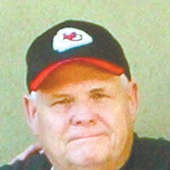Our turbulent times may provide lessons for today
Yesterday was the 40th anniversary, of the fall of Saigon, Vietnam. That event signaled an end to one of our most contentious wars. Last weekend, I watched a show that depicted a group of Vietnamese children (now grown ups), who were miraculously evacuated, before the fall. As I flashed back in my mind, I remembered that this news story was in many ways, the last chapter, of one of the most turbulent periods, in American History.
I was born 3 1/2 years after the first atomic bomb was dropped on Hiroshima, Japan. Our outlook on recent history was influenced by the many World War II movies that dominated the big screen, along with the still popular "Westerns." The nuclear era changed forever what warfare would be for my generation. Large concentrations of troops, spread all over a European theatre, no longer made sense. One could have hoped, this new situation would have brought an end to wars, but the opposite became the norm.
We would become known as the generation of the '60s. We are the Baby boomers who were born in huge numbers in the period after the war years. Our parent's generation would become revered in later years as "The Greatest Generation." The terms used to describe my age group, rarely included such praiseworthy adjectives.
In the '50s, we quite naive about "The Bomb." We even practiced getting under our school desks in the event of an actual attack. Many things have been assumed about the behaviors of my generation, but one must take into account, that we were the first kids, to grow up under the constant threat of nuclear devastation.
We were raised to fear the Russians and communism. The "Cold War," was just something we took for granted. After all, there would be no James Bond if there were no such enemies.
Most of us grew up thinking we were patriots, who would willingly go to war, if our country needed us. Then along came Vietnam. There are many people who still argue over the right or wrong parts of that conflict, but there is no doubt, that it was at best, a "messy" war.
I blame "The Bomb," for that mess. When I was in college we were required to take ROTC. In the classroom, we studied the Defense Department's manuals, which detailed the reorganization of the military, during the '50s.
Right there in easy to read print, were their plans for the future of warfare. They concluded that "The Bomb," necessitated the creation of smaller, more mobile, armed forces.
It also stated, that future wars would have to be "Limited." Limited by their definition, was a war that would not become world wide, nor would it escalate to the use of nuclear weapons.
Vietnam fit their definition of "Limited War," to a tee. We were able to keep the war localized to the general areas of Vietnam, Cambodia, and Laos. We also never resorted to using nuclear weapons.
To fight the communists in Vietnam, we used the dual tactics, of mobility and air power. The helicopter became like the cavalry of the times before mechanized equipment. We moved men, material, and supplies, all over the area, at lightning speeds.
We tried to use our air power to decimate the Viet Cong. Both bombing and air cavalry were effective, but we ran into another problem. While we won battle after battle, the Viet Cong proved to be a lot like our forefathers from the American Revolution. They hardly ever won a battle, but as soon as we left an area, they simply came back and took over.
At the height of the war, we had somewhere in the neighborhood of 600,000 troops on the ground. Vietnam was not a large country, but to effectively control and occupy it would have required many times that number.
Our military was drafting everyone who was not in college. Here is how most of their tours evolved. They were drafted, then sent to both basic training and advanced individual training. They were next sent to Vietnam, for approximately a year. Often they were released after serving just under two years. This revolving door of draftees, proved to be quite ineffective.
My generation that had always thought themselves to be quite patriotic began to have a change of heart. This was the first war in history that was covered by television. Each night scenes of battle and casualties were viewed in practically every American home.
As the war dragged on, supporters began to grow weary. Year after year, the war continued, with no end in sight. America was used to winning. This new "Limited" style of warfare became very unpopular. One can argue endlessly if the war was right, wrong, necessary, or if we quit too soon. In the end, none of that matters. America was tired of the war, and we got our tails out of there.
In a strange twist of fate, Vietnam is now a country that is for the most part, quite friendly towards America. The once feared communists, now run a very peaceful country, that welcomes Americans, who travel and trade there.
During my teen years we saw President Kennedy assassinated, the Civil Rights Movement, the Vietnam War, the Tet Offensive, the assassination of Martin Luther King, the assassination of Robert Kennedy, the Kent State tragedy and subsequent riots, and what some think of as the end of the '60s, the day the helicopters struggled, to get refugees out of Vietnam.
Those days are gone but not forgotten. My grandchildren and their generation will face new challenges. Worldwide terrorism, cyber attacks, and even possible wars in space, are the battlefields of the future. I just hope they can look back at my time, and gain some insight, from our very turbulent "SIXTIES!"

